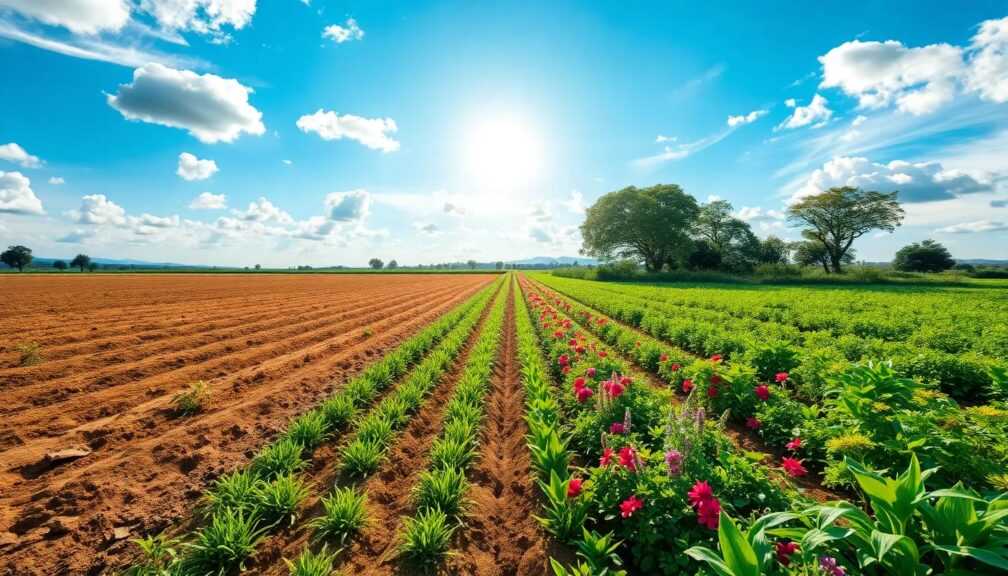Does automatic irrigation really work? Here are the results

Exploring the Efficacy of Automatic Irrigation Systems
As the quest for efficient water usage in agriculture and landscaping continues, automatic irrigation systems have become a focal point for both enthusiasts and professionals. These systems promise to deliver water directly to the plants' roots with precision, potentially conserving water while maintaining plant health. But does automatic irrigation truly live up to its claims? In this article, we delve into the results of studies and real-world applications to uncover whether these systems are as effective as advertised. We'll explore feedback from farmers, landscape architects, and home gardeners who have made the switch to automatic watering. Join us as we investigate the impact of this technology on water conservation, plant yield, and ease of use.
What are the disadvantages of automatic watering system?
Imagine waking up to a verdant, thriving garden every single day, without ever having to lift a finger. The allure of automatic watering systems can be enticing – the promise of convenience and precision. However, lurking beneath the surface of this modern gardening marvel are complexities and pitfalls that could turn your green paradise into a withering wasteland.
Firstly, the initial setup of an automatic watering system can be a daunting task, often involving a hefty investment. You might fancy the idea of a hands-off approach to irrigation, but your wallet might not share the same enthusiasm. The cost extends beyond the mere purchase; installation can be intricate, requiring professional assistance.
Once operational, the threat of mechanical failures looms large. A system that's supposed to be your silent, reliable gardener can betray you, leading to overwatering or underwatering. The consequences? Root rot, plant diseases, or even the loss of your cherished plants.
But let's delve deeper. The unseen enemy of water wastage might be the most disturbing disadvantage. In an era where water conservation is pivotal, an automatic system can become a foe to the environment, especially if not properly calibrated or if leaks go unnoticed.
Moreover, the lack of human touch can be detrimental. Plants are like individuals, with unique needs and responses to their environment. An automatic system can't adjust to these subtle nuances, potentially neglecting the special care required for your garden to flourish.
As you weigh the options for maintaining your garden, the knowledge of these potential drawbacks is critical. The choice between the seductive ease of automation and the attentive care of manual nurturing hangs in the balance. The fate of your garden might just hinge on the decision you're about to make.
Does drip irrigation really work?
Discover the transformative power of drip irrigation, a cutting-edge method that is revolutionizing the way we think about water conservation and plant vitality. Imagine a world where every drop of water is used to its fullest potential, nurturing your garden with precision and care.
Harness the secrets of successful gardeners and farmers who have made the switch to drip irrigation systems. These pioneers have witnessed a dramatic surge in their crop yields, while simultaneously slashing water usage. The compelling evidence points to a resounding 'yes' – drip irrigation is not just a mere gardening trend; it's a game-changer.
Unveiled here are the unparalleled benefits of this ingenious watering method:
1. Efficiency: By delivering water directly to the roots, drip irrigation minimizes wastage, making it a beacon of sustainability in a world where water is becoming increasingly precious.
2. Cost-effective: Over time, the savings on your water bill will have you wondering why you didn't make the switch sooner.
3. Healthier plants: With consistent and targeted watering, your garden is less susceptible to the diseases that come from overwatering.
4. Time-saving: Automate your garden watering and free up countless hours – time that could be spent enjoying the fruits of your labor.
Don't let your garden be left in the dust while others are reaping these benefits. The lure of a lush, vibrant garden that thrives while conserving water is not just a pipe dream – it's within your grasp.
But how does one navigate the vast sea of options and technical jargon to create their own drip irrigation oasis? Stay tuned as we unravel the mystery and provide you with the knowledge to transform your gardening experience forever. Make no mistake, the journey to a greener, more flourishing, and water-wise garden starts here. Are you ready to join the revolution and witness the astounding results for yourself? The time to act is now – don't let the opportunity trickle away.
Are lawn irrigation systems worth the money?
Imagine stepping outside to a lush, vibrant lawn, the envy of the neighborhood, without ever having to drag a hose or set a sprinkler again. This dream can be your reality with the right investment in a lawn irrigation system. But the burning question remains, will it prove to be a smart financial decision?
The truth is in the numbers. Well-designed irrigation systems can save you money by conserving water through tailored schedules and precise application. No more overwatering or parched patches of grass – just perfect, even hydration every time.
However, the advantages don't stop there. A top-notch system elevates the health of your turf, bolstering its ability to fend off pests and diseases. Property value also gets a significant boost with the addition of a professional irrigation setup. After all, curb appeal matters, and nothing says "prime real estate" quite like a flawless expanse of green.
But wait, there's more to consider. The convenience factor is a game-changer. With smart technology integration, newer systems can be controlled right from your smartphone. Imagine the freedom of managing your lawn's hydration from anywhere, at any time!
The potential savings in time and water bills, coupled with the aesthetic and property value enhancements, make lawn irrigation systems a tantalizing option. Yet, the upfront costs can be a hurdle. Is it a hurdle worth leaping over? The answer is waiting for you just around the corner, and it might just surprise you.
Keep in mind, however, that not all systems are created equal. It's crucial to weigh the costs against the features and benefits that align with your specific needs. Do you really want to miss out on the secret to a perpetually perfect lawn? Or will you take the leap and discover the myriad of benefits waiting to be unlocked by a lawn irrigation system? The choice is in your hands.
What is the problem statement of a smart irrigation system?
Discover the critical challenge at the heart of revolutionizing agricultural efficiency. Imagine a world where every drop of water is optimized for plant health, ensuring lush crops and sustainable farming practices. The core issue addressed by a smart irrigation system lies in the intricate dance between water conservation and crop yield maximization.
Farmers and agronomists are all too familiar with the delicate balance required to maintain soil moisture at levels that encourage plant growth without wasting precious water resources. As climate change intensifies, the stakes have never been higher. With droughts becoming more frequent and severe, the need for precision in irrigation is not just desirable; it's paramount.
Enter the realm of smart irrigation systems, where the combination of sensors, data analytics, and automated controls promises to transform how we manage our agricultural water use. The question is no longer about whether we can achieve better water management, but how quickly we can implement these intelligent systems to preserve the lifeblood of our crops.
Key elements such as soil moisture levels, weather forecasts, and plant water requirements are all variables in this complex equation. The problem we're facing is not just about saving water; it's about ensuring food security for a growing global population.
Don't miss the opportunity to explore this groundbreaking approach to agricultural sustainability. The journey toward smarter irrigation is not just about technology; it's about creating a future where every drop of water is a testament to human innovation in harmony with nature.
Disadvantages of smart irrigation
While the buzz around smart irrigation systems is growing, there's a hidden side to this technological advancement that could impact your garden, your finances, and even the environment. Imagine having the perfect lawn, only to realize you're not in control as much as you thought.
Firstly, the initial cost can be a shock. Are you prepared to shell out a significant amount of money upfront? Smart irrigation systems come with a hefty price tag for installation and set-up. And if you're thinking of skimping on prices, beware – lower-cost options might not offer the efficiency or longevity you're seeking.
Then, there's the complexity of technology. Think you're tech-savvy? These systems can challenge even the most confident user. The learning curve is steep, and troubleshooting issues can be as frustrating as untangling a garden hose. You might be signing up for more than just watering your plants – you could be investing in hours of figuring out software and hardware intricacies.
Maintenance and repairs are also inescapable. You might save time on watering, but smart systems demand regular check-ups. Sensor malfunctions, software updates, and other technical glitches could leave your garden thirstier than ever. Are you ready for the potential headache of keeping your system in top shape?
Moreover, over-reliance on technology could lead to unexpected consequences. Imagine a power outage or a Wi-Fi disconnection at the peak of summer. Your automated assistant might leave your plants high and dry when they need water the most. How vulnerable are you willing to let your garden be?
Lastly, consider the environmental implications. Smart systems are marketed as eco-friendly, but they're not always as green as you might think. The production of electronic components contributes to e-waste, and if not properly managed, this could offset the water-saving benefits.
Intrigued? There's more to the story, and understanding the potential downsides is crucial before you jump on the smart irrigation bandwagon. Stay tuned for a deep dive into how these systems can affect your green space, your wallet, and the planet.
Consejo final: Para aquellos interesados en si la irrigación automática realmente funciona, es importante revisar estudios de caso y resultados de usuarios a largo plazo. Asegúrate de comparar diferentes sistemas y considerar las condiciones específicas de tu jardín o cultivo. La inversión inicial puede ser significativa, pero los beneficios en eficiencia de agua y ahorro de tiempo suelen justificar el gasto. Recuerda que la tecnología avanza constantemente, por lo que mantenerte informado sobre las últimas innovaciones puede conducir a mejores resultados. Que tengas éxito en tu proyecto de irrigación.
 We used AI to design a backyard — this is how it turned out
We used AI to design a backyard — this is how it turned out DIY landscaping: what actually works and what doesn’t
DIY landscaping: what actually works and what doesn’t Turn your garden into your personal escape
Turn your garden into your personal escape 15 backyard ideas to help you forget about stress
15 backyard ideas to help you forget about stress Gardens that look like Bali resorts (and how to copy the vibe)
Gardens that look like Bali resorts (and how to copy the vibe)If you want to know more about similar articles like Does automatic irrigation really work? Here are the results you can visit category Landscaping.
Deja una respuesta